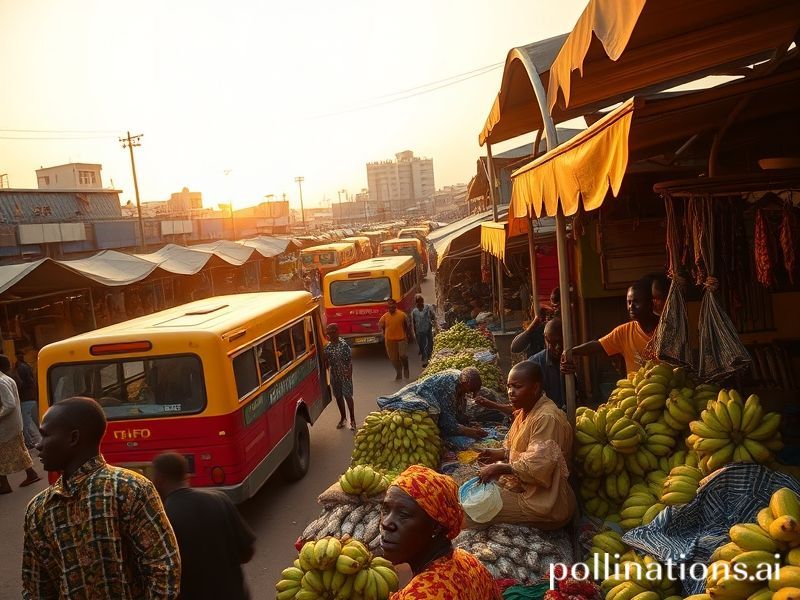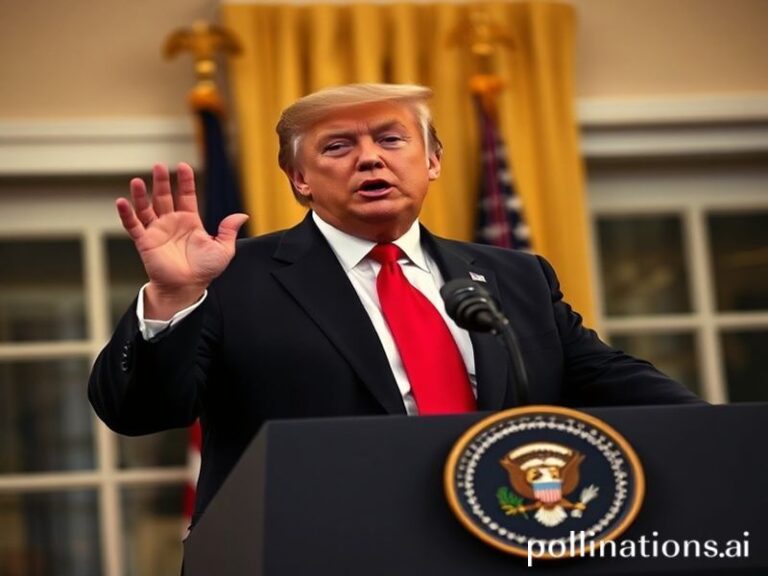Nigeria: The World’s Favorite Beautiful Mess and What Happens If It Ever Cleans Up
Nigeria is the world’s favorite cautionary tale wearing a couture agbada. Two hundred million people, Africa’s largest economy, and a daily masterclass in how to sprint while shackled—yet somehow the sprinters keep breaking world records in hope. From Berlin boardrooms to Beijing construction sites, policy nerds whisper the same question: if Nigeria ever truly gets its act together, who exactly will be left to sell discount oil to?
Start with the numbers that make IMF economists clutch their bespoke lattes. Nigeria pumps roughly 1.4 million barrels of crude a day—enough to keep Europe’s SUVs humming and to finance another fleet of private jets for clergy who promise prosperity in exchange for seed offerings. Meanwhile, 92 million citizens still lack reliable electricity, giving the national grid the dependability of a drunken weatherman. The contradiction is so flagrant that even global consultants, whose job is to put lipstick on sovereign debt, have started billing in advance.
On the geopolitical dance floor, Nigeria is everybody’s plus-one. Washington frets about counter-terrorism in the Sahel and so generously donates second-hand drones that crash slightly less often than Nigerian Airways. Beijing, less sentimental, simply builds another railway to nowhere and politely asks for collateral spelled “C-R-U-D-E.” As Putin lectures the West about spheres of influence, Lagos nightclubs import Russian champagne by the pallet. Imperial nostalgia is apparently best served at 4 a.m. with overpriced shisha.
The tech story is where the cynicism meets the Wi-Fi. Lagos’ Yabacon Valley now hosts more fintech unicorns than London can brag about—each one solving the uniquely Nigerian problem of moving money around a banking system kept alive by duct tape and prayer. International VCs, having gentrified every other emerging market, flock in like bargain-hunters at a Balenciaga fire sale. They discover, to their horror, that local founders already speak fluent disruption and just want seed rounds denominated in dollars, not sermons on “impact.” Meanwhile, the national currency, the naira, performs interpretative dance against the dollar, a routine critics call “devaluation by modern art.”
Environmentalists clutch their pearls at the flaming torches of the Niger Delta—gas flares visible from space, like Earth’s own tragic Snapchat filter. Shell and Eni insist they’re “transitioning,” which in corporate speak means hiring influencers to offset the smell of crude on your conscience. Europe, desperate for anything not sourced from Russia, suddenly remembers Nigeria exists and offers to fund solar panels—provided the panels are installed by European contractors and the sun is delivered FOB Rotterdam.
Then there’s the diaspora, Nigeria’s most successful export after Afrobeats and heartbreak. From Peckham to Peckham-on-the-Hudson, remittances flow back like guilty tribute: $20 billion a year, enough to single-handedly prop up whichever mid-tier bank the Central Bank hasn’t yet nationalized. In Toronto, Nigerian doctors keep Canadian emergency rooms humming; in Houston, petroleum engineers politely pretend their home refineries aren’t on fire. The world loves Nigerian talent—just preferably somewhere else, thanks.
Of course, every February the country pauses for democracy’s dress rehearsal: elections that combine the suspense of Succession with the production values of a Nollywood B-side. Ballot-snatching videos go viral on TikTok, earning more views than the Super Bowl and reminding Silicon Valley that content moderation is, at its core, a colonial art. International observers issue stern communiqués about “logistical challenges,” which is diplo-code for “we saw the thugs but the buffet was decent.”
And yet, against all odds—coup scripts recycled more than NEPA cables—Nigeria endures. Not politely, not efficiently, but with the stubborn exuberance of a wedding party dancing through a power cut. Should the day come when Lagos traffic lights actually work, when Abuja potholes are fixed rather than prayed over, the global balance of smugness will tilt violently. Until then, the world keeps buying Nigerian oil, streaming Nigerian beats, and pretending surprise when the next scam email opens with “Dear Beloved.” Nigeria is the joke everyone laughs at until they realize the joke is on them—and that the laughter, like the crude, is flammable.







